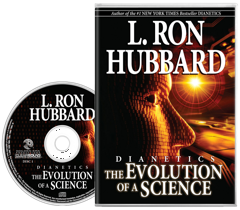The Main Principles Of Dianetics
The Main Principles Of Dianetics
Blog Article
The Best Strategy To Use For Dianetics
Table of ContentsThe Best Strategy To Use For DianeticsDianetics for BeginnersDianetics - TruthsThe 5-Minute Rule for Dianetics
I could not ever before not desire to get anything that enters your mind for you- if it was or else, I would not be sitting right here with you, doing this. I not only can never have a problem, or not intend to hear something that enters your mind for you, but I'm completely anxious to understand every concept, every thought, every picture or feeling that arises or materializes for you- don't ever assume or else, and if for one reason or another you do, please just let me know! Sometimes, you might have an idea, and picture, idea or case turn up that does not appear to answer the concern, or connect to it, however however, always do inform me about it, and as we proceed, the significance will certainly emerge for you.This is fundamental in the basis of handling, and the subject of this discussion: the standard roles of the therapist and the client: The standard function of the therapist is, unlike "conventional training", not to control, which suggests to implement and/or prevent, yet to rather work from the basis of EMPOWERING THE CUSTOMER.

Dianetics - The Facts
John Mcmasters expressed this fundamental truth splendidly well in one of his talks on Power processing, in which he describes how he was asked what this "special flair" was that he had for providing such excellent sessions; he had to think regarding that for a moment, and spotted that it was what he had not been doing, along with what he was doing: he wasn't assessing, evaluating, computer, or actually, generating any type of ideas, not to mention verbal expressions, after providing the command and while waiting on the PC to complete their answer to their satisfaction; he was, merely and only, being present with the computer, and entirely interested.
The duty of the therapist, showed; that was his "unique flair". I have actually had my own experience which taught me this well, really early on in the video game. In 1982, having lately finished my training and internship on New Age Dianetics, I was running this on a PC, and there was a point in the session where (being a bit wet behind the ears not yet having numerous hours under my belt as a specialist auditor) the computer seemed to be "taking too long" to share anything verbally after I offered him a command.
This key became one of the most useful contribution that John ever made to the subject of treatment or bookkeeping (Dianetics). In my simple viewpoint, it is the biggest contribution index that anybody has ever before made to these subjectsthe application is completely non-judgemental, non-evaluative, and lacking any kind of suggestion, suggestions or opinion.no preconditioned program for people, or 'levels' that they have to do
In Idenics, the only resource of details concerning a customer is the specific client. In Scientology we prided ourselves on not examining for individuals. All that really meant was that the auditor did not VERBALLY review for the Computer in session. The registrars and principles officers evaluated for the computer.
10 Easy Facts About Dianetics Shown

Any person who had actually ever seen John audit can not help yet discover an unique top quality in his auditing."The customer's fundamental duty is to be there with the function of relocating the direction of their spiritual objectives, and to freely and totally reveal and experience whatever manifests for them in answering the concerns and implementing the directions in the processing.
This is something to procedure as needed. Yet also, people regularly have prior experience and/or indoctrination in auditing/processing which, somehow, and to some extent, in fact misinforms them into perspectives, concepts and actions patterns that avoid the complete realization of these duties, and so they will certainly often tend to prevent the expressing of what comes to mind, as in the instances offered above. * The very first, and maybe leading instances of mis-indoctrination leading to less than completely smooth and efficient sessions, can be located in particular facets of the training regimens, or "TR's":"TR's" are often an individual's initial, visit our website or a minimum of early, experience in Scientology, and while I will certainly take place to clarify what I view as the imperfections in principle and method, nonetheless, have a tendency to be substantially healing, done as read review they are offered (Hubbard firmly insists that "TR's are not refining, they are educating", however factually, they are both processing AND training)
There is no "flunking", and no rejection of the reality of this being handling. The emphasis, as it should be, is on experiencing the various other person's presence.
Dianetics - An Overview

Report this page